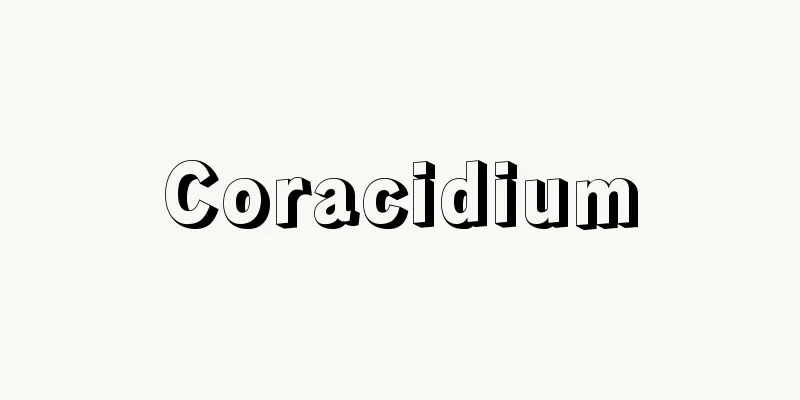Biorhythm - Biorhythm (English spelling)

|
Biorhythms are the collective term for changes that occur within an organism with a fixed cycle. Of these, those that occur over a roughly 24-hour period are called circadian rhythms, and are particularly important in the field of research into animal behavior. Those that show shorter cycles than the circadian rhythm (such as the beating of the heart) are called ultradian rhythms, and those that show longer cycles than the circadian rhythm (such as the menstrual cycle) are called infradian rhythms. In humans, the rhythm of each heartbeat has a cycle of about one second, but when it comes to sleep, one day is considered as a unit. There are also deep and light sleep periods, and shortly after birth, we sleep all day, but as we grow, the amount of sleep shortens, and in adults, it is shortened to 6 to 8 hours. Humans adjust their behavior by watching the clock and adapt to social life, but it is thought that animals also have something inside their bodies that adjusts the length of time, and this is called the internal clock or biological clock. In humans, for example, the number of heart beats and the amount of sleep vary from person to person, so their biological rhythms are not uniform. However, adapting one's biological rhythm to one's life is important for maintaining physiological regulation mechanisms such as energy metabolism and managing one's health. When traveling to a country with a time difference by plane, one cannot adjust to the daylight hours and daily life of that place, and this can lead to poor health, because one's biological rhythm is disrupted. Furthermore, experiments using insects and animals have shown that light is deeply involved in the nervous system through the eyes and thalamus, affecting not only the rhythms that maintain the individual but also reproductive rhythms. [Ono Mitsutsugu] [Reference] | |Source: Shogakukan Encyclopedia Nipponica About Encyclopedia Nipponica Information | Legend |
|
生物体内に生じる一定の周期をもった変化を総称してバイオリズムという。このうち、おおむね24時間を一周期として生じるものを概日(がいじつ)リズム(サーカディアンリズムcircadian rhythm)とよび、とくに動物行動を探る研究分野においては重要とされる。概日リズムより短い周期を示すもの(心臓の拍動など)をウルトラディアンリズムultradian rhythm、概日リズムより長い周期を示すもの(月経周期など)をインフラディアンリズムinfradian rhythmとよぶ。 人間の場合、心臓の拍動一拍一拍のリズムは約1秒前後の周期を示すが、睡眠などでは1日を単位として考えられる。また、その睡眠時間においても深い眠りと浅い眠りがあるし、生後まもなくは一日中寝ているが、成長に伴って睡眠時間は短くなり、成人では6~8時間に短縮される。人間では時計を見ながら行動を調節し、社会生活に適応していくが、動物の場合でも時間の長さを調節するものが体内にあるとする考えがあり、これを体内時計とか生物時計とよんでいる。人間の場合は、たとえば個人によって心臓の拍動数や睡眠時間が異なるように、その生体リズムは画一的ではない。しかし、その人にあった生体リズムをうまく生活に適合させることは、エネルギー代謝などの生理調節機構を順調に働かせ、健康を管理するうえではたいせつなこととなる。飛行機などで時差のある国へ旅行したとき、その場所の日照時間や生活時間に順応できず、体調を崩すのは、生体リズムが乱れたためである。また、昆虫や動物を使った実験では、光が目や視床を通して神経系へ深くかかわり、個体を維持するリズムだけでなく生殖のリズムにも影響を与えることが知られている。 [小野三嗣] [参照項目] | |出典 小学館 日本大百科全書(ニッポニカ)日本大百科全書(ニッポニカ)について 情報 | 凡例 |
<<: Violin - Violin (English spelling) violin English
>>: Biomechanics (English spelling)
Recommend
Segantini - Giovanni Segantini
Italian painter. Known for his depictions of the ...
Mouse grass - Mouse grass
A perennial grass of the grass family found under ...
GOT - GOT
Abbreviation for glutamic-oxaloacetic transaminas...
Bamboo sword - No
A type of imitation sword invented for the traini...
HDPE - HDPE
High-density polyethylene. It has a linear structu...
Reisz, K.
…The British documentary film movement started in...
The culprit
〘noun〙① A person who has done something with his o...
Central Council for Education
This council was established in the Ministry of E...
Charcoal sack - Sumidawara
Haikai Senshu (Collection of Haikai Poems). Two v...
Voronkova, LF (English spelling) VoronkovaLF
...Soviet realistic novels for children were form...
striptease
...A show in which women dance and take off their...
Self-help friend
…As a philosophical term, it is used reflexively,...
Slaked lime
…The chemical formula is Ca(OH) 2. It is also cal...
Greater adjutant (English name: Leptoptilos dubius; greater adjutant)
Order Ciconiiformes, Family Ciconidae. Average len...
Hakke Hakko - Eight Lectures on the Lotus Sutra
This is a Buddhist ceremony in which the eight vol...


![Wooden [town] - Kizukuri](/upload/images/67cb541de2498.webp)






